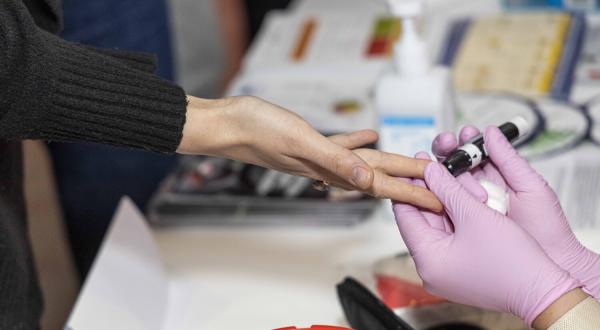Discussion Concludes That Women Often Don’t Prioritise Their Health
The main conclusion to come out of a discussion on women’s health organised by the Health Centre Association at which lecturers and researchers from Rīga Stradiņš University (RSU) participated is that women all too often neglect their own health. Participants acknowledged that problems in doctor-patient communication, the fact that women often prioritise caring for others, and a tendency not to put themselves first, as well as a lack of motivation and necessary skills to use the information that is available are the most common reasons preventing women from taking care of their health and thus to utilise the full scope of modern medical achievements. The discussion was moderated by Vents Sīlis, philosopher and Associate Professor at RSU.
The aim of the discussion was to raise awareness regarding these issues that prevent women in Latvia from fully taking care of their health. RSU was represented by Prof. Gunta Ancāne, the Head of the Department of Psychosomatic Medicine and Psychotherapy, and Anda Ķīvīte-Urtāne, Assistant Professor of the Department of Public Health and Epidemiology and leading researcher of the Institute of Public Health.

In a survey conducted by the Health Centre Association and the Latvian parent association Mammamuntetiem.lv this September, 75% of respondents answered that they usually brought up pressing questions to their doctor. However, 65% of women admitted that they thought that everything they needed to know could be found online. 23% of women responded that they discuss their health issues with female friends, 18% with their mothers and 15% consult a pharmacist.
At the beginning of the discussion, Prof. Gunta Ancāne emphasised that there are communication problems in Latvian society, which also affect the therapeutic relationship between doctors and patients.
In the survey, when asked whether women were informed about state-funded cancer screening programs, 78% answered affirmatively, 13% were informed but did not know how to use this information, and over 6% admitted that they were not aware of such a possibility.
Leading researcher Anda Ķīvīte-Urtāne emphasised that while women have information, they also need skills: ‘Women know that they have to go for state-funded health examinations, for example, but there is a lack of awareness about the details – where exactly they need to go, to which doctor, and whether they will have to pay.’
Prof. Gunta Ancāne brought up that it’s important to emphasise that everyone is responsible for their own health. Women, regardless of social group, often have lower self-esteem. The desire to do good by everyone else, but at the same time neglecting to take care of themselves means that women can have emotional difficulties in taking care of their own needs,’ the professor added.
RSU Assoc. Prof. and philosopher Vents Sīlis, who moderated the discussion, pointed out that ‘healthy people understand that they need to take care of themselves. If you want to live and fulfill the family responsibilities you have chosen, then you have to take good care of yourself. How can we be good moms, good dads and good colleagues if we do not give ourselves some much-needed time to rest. In today’s fast-paced life, you have to find time for rest and restoration.’
Prof. Ancāne emphasised that the world is currently changing: ‘This is an age of constant changes which reinforce fear, insecurity, and a questioning of one’s abilities. The degree of insecurity is high, and one of the tasks that doctors have is to reduce this insecurity. Experts from the World Health Organization also point out that our mental health largely determines our physical health, and this is something worth considering.’
In conclusion, the experts agreed that humanity, having a respectful attitude to one another and the ability to communicate regardless of status are the steps to a healthier society.
Related news
 RSU Health Day attracts many first-time donors and large number of student research groupsFor RSU Employees, For Students
RSU Health Day attracts many first-time donors and large number of student research groupsFor RSU Employees, For Students


